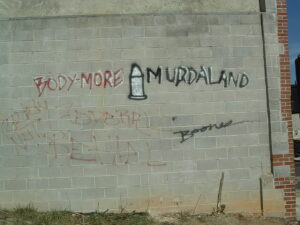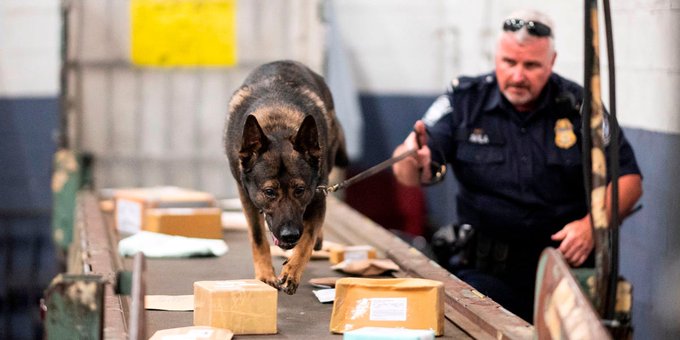equityorganization.org
naacp.org
aclu.org
washingtonpost.com/nation/2020/08/09/portland-police-union-fire/
oregonlive.com/portland/2020/08/saturday-night-riot-todays-top-takeaways.html (+)
theguardian.com/us-news/2020/aug/09/portland-protesters-clash-police-building-fire
Situation declared a riot as police use flashbang munitions and smoke canisters to force hundreds away
Matt’s note: Of the three articles here, I prefer The Oregonian’s.
Both The Washington Post (‘baldy’s boys) and The Guardian seem to editorialize quite a bit, but from different directions.
On such a polar topic as this, I believe reading many sources of different political leanings (especially the ones you disagree with) is important.
Also, you want to know what the quickest way to loose support for a movement is?
- No clearly defined, obtainable objectives
- No formal organizational movement or administration
- Set fire to police buildings and commit violence, or respond to it in kind
Shame. Shame for those who squander the legacy of what civil rights leaders have worked for decades to establish.
Shame for those who forget Dr. King’s long march to freedom
Shame for those who forget the bravery and foresight of those who chose to march. To march for their vote, to march in the most bigoted parts of the deep south, and yet still choose nonviolent activism: to stand and get beaten and bloody for all the nation to see on television:
It’s finally time to defund the drug war
In the wake of George Floyd’s killing, the public has demanded policies like chokehold bans, access to police department’s personnel files, and an end to the idea of qualified immunity. Politicians have countered with talk of body cams, anti-bias training and a harder look at municipal budgets.
Most of these efforts are well-intentioned. Many are worthwhile. But despite the recent flurry of policing and criminal justice-related reforms, there’s been virtually no discussion around one of the biggest drivers of over-policing and racial injustice in America: our five-decade long War on Drugs.
“there’s been virtually no discussion around one of the biggest drivers of over-policing and racial injustice in America: our five-decade long War on Drugs.”
“If we’re serious about making real change in the US then it’s time we started talking about defunding the drug war.“
If we’re serious about making real change in the US then it’s time we started talking about defunding the drug war.
The war rages on
To be fair, it’s often hard to remember we’re still embroiled in the expensive, expansive War on Drugs. After all, the hysteria around (Black) crack babies and dope dealers has been replaced by nuanced portraits of (White) victims of the opioid epidemic. Recent years have seen shifting sentiment around substances like marijuana and the tempering of once-absurdist drug education.
Even the rhetoric has changed. Gone are the Reagan-era invocations of “public enemy number one”. They’ve been replaced by the compassionate — though deceptive — language of drug courts, dependency issue, a public-health crisis.
But make no mistake: despite its diminished presence in our public and political consciousness, the war’s still very much on. Every year, our elected officials funnel tens of billions of dollars and destroy countless lives in order to prop up America’s discriminatory and counterproductive drug policies.
Predictably, Black people are generally the ones who pay most dearly, and as recent events sadly demonstrate, oftentimes the price is their life.
It’s no coincidence that a responding officer taunted the crowd by saying “this is why you don’t do drugs, kids”
Their deaths are visceral reminders of our country’s long, sordid history of using drug use — real or imagined — to control, criminalize, and brutalize minority communities.
There’s a direct throughline from our drug war policies to the botched no-knock arrest that killed Breonna Taylor. It’s no coincidence that a responding officer taunted the crowd by saying “this is why you don’t do drugs, kids” as Derek Chauvin kneeled on George Floyd’s neck. Their deaths are visceral reminders of our country’s long, sordid history of using drug use — real or imagined — to control, criminalize, and brutalize minority communities.
As headline after headline and data point after data point demonstrate, in both its inception and its enforcement, the War on Drugs—and the carceral state it has helped to create—has really always been a War on People.
And more specifically, a war on Black and brown people.
How policy can help
The racialized reality of American drug enforcement isn’t a bug, it’s a feature. From the very beginning, the explicit goal of our country’s drug policies were to criminalize members of what Harry Anslinger — the grandfather of American drug enforcement—believed to be “the degenerate races“.
Anslinger architected marijuana prohibition, a policy that’s been a linchpin of broken-windows policing and mass incarceration, and pushed it through Congress with fabricated evidence and testimony that “reefer makes darkies think they’re as good as white men.”
….pushed it through Congress with fabricated evidence and testimony that “reefer makes darkies think they’re as good as white men.”
A cursory look at our militarized law enforcement agencies, prejudicial penal code, over-policed minority neighborhoods, and distended criminal justice system, demonstrates the countless ways the drug war has served to animate and exacerbate many of the racial injustices and social inequities we’re grappling with today. And to add insult to injury, this unyielding crusade has done virtually nothing to curb American drug consumption.
Criminal justice reform has become an increasingly popular, bipartisan issue over the past few years. But though one of every five people currently incarcerated in American prisons and jails is there because of a drug conviction, there’s been very little political movement around drug policy reform issues.
As our politicians pay lip service to ideas around decriminalization and drug courts, American police departments are still making over a million drug possession arrests each year. And unfortunately, the few drug-related reforms that have been prioritized (eliminating crack and powder cocaine sentencing disparities, drug courts, etc.) betray a superficial understanding of both the law and our criminal justice system. Marijuana decriminalization efforts, for example, barely make a dent in the number of — or racial disparities related to — weed-related arrests.
Even if one were to just focus on our policy of federal cannabis prohibition, we’re still talking about millions of stop-and-frisks, traffic stops, summonses, arrests and probation violations each year. In fact, American law enforcement agencies make more arrests for marijuana possession than all ‘violent’ crimes combined.
Unsurprisingly, most of these cannabis-related encounters are overwhelmingly centered in African-American communities. Despite virtually identical rates of consumption Black people are almost four times as likely as their white peers to be arrested on marijuana charges.
Despite virtually identical rates of consumption Black people are almost four times as likely as their white peers to be arrested on marijuana charges.
And while it’s true that fewer people are serving long prison sentences for weed than they were a decade ago, our draconian and ever-expanding system of collateral consequences means that a marijuana-related encounter can easily result in eviction, student loan ineligibility, and the impossibility of ever being able to access gainful employment.
Marijuana isn’t a gateway drug—at least not in the sense most people imagine. However, it is a gateway for Black people to arrests, incarceration, and death and defamation at the hands of the state.
The good news is, the vast majority of Americans agree that the War on Drugs has been an abject, spectacular failure. And though these highly polarized times mean it’s rare to find an issue that brings together people of different political persuasions, when it comes to dismantling the drug war… well, there’s an angle for everyone.
Libertarians can focus on the conflict’s role in the expansion of civil asset forfeiture . Conservative commentators should speak up about the civil liberties violations associated with racially biased and pre-textural stops.
Good governance groups should look into claims that the Department of Justice is devoting most of its resources to advancing Bill Barr’s personal drug-related vendetta. Criminal justice-minded reformers can focus on claims that cities have ceased arrest quotas and “stops and frisks”. After all, police departments continue to collect billions in taxpayer dollars that are directly tied to the number of drug-related arrests.
Even the most dispassionate observer should be concerned about tanks — given to police departments by the Department of Defense for counternarcotics operations— parading down small town streets.
Matt’s Note: “Tank” is a word often over-used by the under-informed. Minor pet-peeve of mine. Police departments have been gifted absurd amounts of military surplus equipment and $800,000 Mine-Resistant Ambush Protected (MRAP) vehicles though, to which I am guessing this author was intending to refer to.
And for those who cite the ‘will of the people” to justify their inaction? 91% of American adults are fed up with our current approach to drug policy.
To be clear, drug policy reform will not end the over-policing of Black communities or eliminate the racial inequities embedded in American society. It alone will not eliminate state-sanctioned violence. Nor will it reverse the devastating and disproportionate harms of the War on Drugs.
But—if done thoughtfully, with a focus on public health—a more humane and equitable approach to drug policy will pull millions of people out of a penal system that marks them for life. It will help people get the help they need, while simultaneously reducing the unnecessary and unjust harassment of (predominantly Black and brown) communities.
…a more humane and equitable approach to drug policy will pull millions of people out of a penal system that marks them for life.
…
It will help change a culture that for too long has looked to drug use to justify mass incarceration, police violence, and death at the hands of the state.
It will help change a culture that for too long has looked to drug use to justify mass incarceration, police violence, and death at the hands of the state. It’s not a panacea, but it is a worthwhile start.
Natalie Papillion is the Founder and Executive Director of The Equity Organization, a national not-for-profit organization working towards a more just, effective and equitable approach to drug policy and criminal justice. She is also the author of the forthcoming ”Reefer Madness: The Roots of Drug Prohibition in America,” a history of drug policy in the early twentieth century.
This is an opinion column. The thoughts expressed are those of the author(s).
Read the original article on Opinion Contributor. Copyright 2020. (Business Insider)
![]()
More:
project-syndicate.org/topic/breaking-the-drug-war-habit
nationalinterest.org/blog/reboot/want-stop-police-brutality-start-ending-war-drugs-now
en.wikiquote.org/wiki/John_Ehrlichman
John Daniel Ehrlichman (March 20, 1925 – February 14, 1999) was counsel and Assistant to the President for Domestic Affairs under President Richard Nixon. He was a key figure in events leading to the Watergate first break-in and the ensuing Watergate scandal, for which he was convicted of conspiracy, obstruction of justice, and perjury and served a year and a half in prison.
The Nixon campaign in 1968, and the Nixon White House after that, had two enemies: the antiwar left and black people. You understand what I’m saying? We knew we couldn’t make it illegal to be either against the war or black, but by getting the public to associate the hippies with marijuana and blacks with heroin, and then criminalizing both heavily, we could disrupt those communities. We could arrest their leaders, raid their homes, break up their meetings, and vilify them night after night on the evening news. Did we know we were lying about the drugs? Of course we did.
Matt’s note: some have cast doubts on the broad generalizations that Ehrlichman makes in this quote, but personally I believe it is an interesting look into the American psyche and the political considerations that may have unjustly founded the war on drugs.
idpc.net/publications/2011/01/idpc-paper-dutch-drug-treatment-programme
The Wire
theguardian.com/tv-and-radio/2018/mar/06/the-wire-10-years-on-we-tore-the-cover-off-a-city-and-showed-the-american-dream-was-dead
wsj.com/articles/the-wire-is-finished-but-baltimore-still-bleeds

link.springer.com/article/10.1007/s12117-018-9350-y
Protection theory searches for analytical links between the absence of state-involvement and the emergence and behaviour of criminal groups. For instance, explaining violence as a means to protect stolen or illegal assets or to ensure criminal agreements in general


